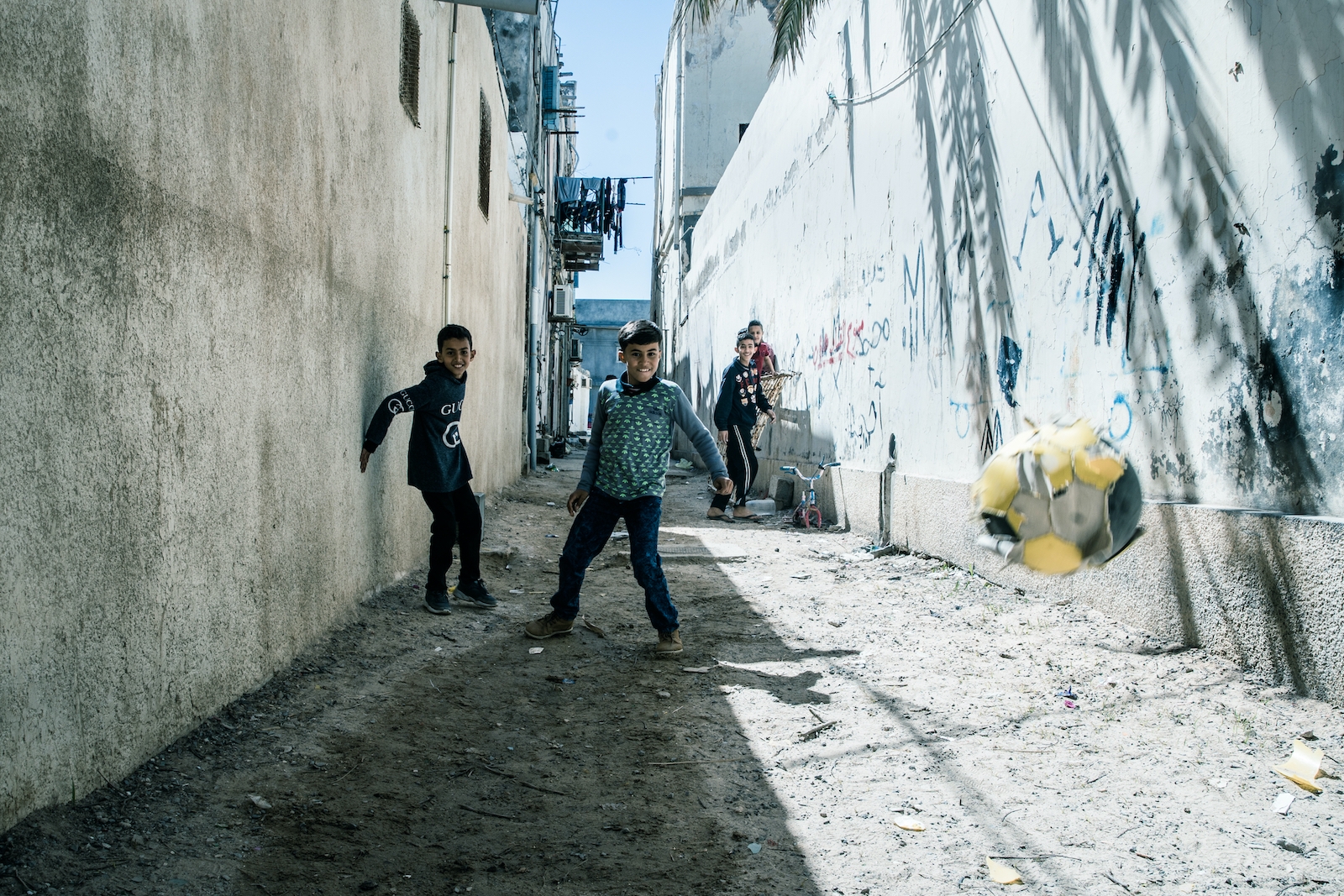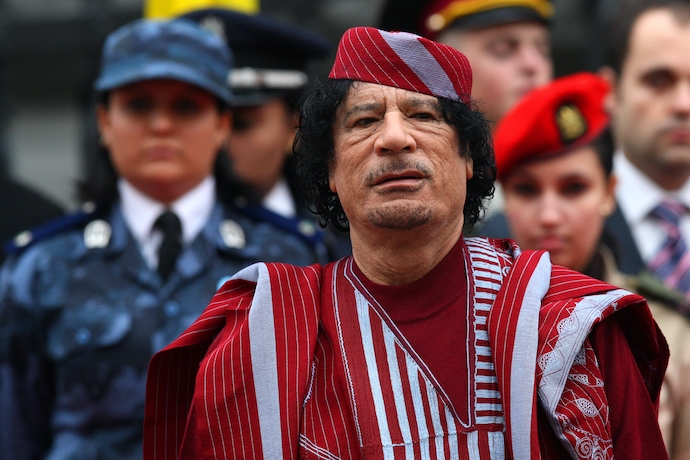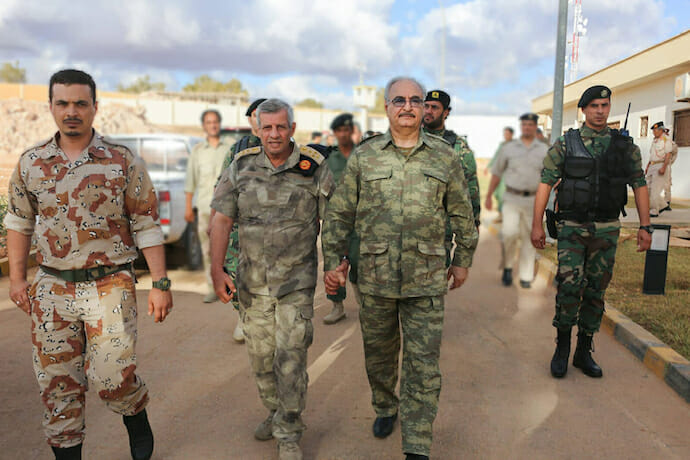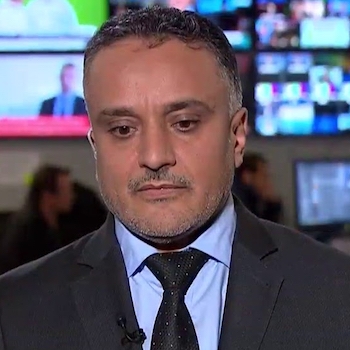
Libya is Sleepwalking Towards Civil War. Here’s Why a Monarchy Can Save It.
“Libya is a critical juncture,” Mohamed al-Menfi, president of the Presidential Council of Libya, told world leaders at the United Nations. “Either we succeed in our democratic transition…or we fail and relapse into division and armed conflict.” When the very person responsible for delivering the democratic transition delivers such a Cassandran warning, it is worth taking heed.
But the situation on the ground, however, is actually worse than Mr. Menfi suggests. There are regular reports of skirmishes between militias that are nominally allied, let alone between armed groups that are sworn enemies. More recently, the Eastern-based House of Representatives in September passed a vote of no confidence in the Western-based Government of National Unity. “Relapse into division and armed conflict”? We are already there.
Libya has been at war with itself for over a decade. The recent delay in elections is simply another turn down the windy road that has been Libya’s politics. In 2011, Libyans rose up to depose a delusional, perverse, and vicious autocracy that suffocated them for 42 years. Once Muammar Qaddafi was deposed, Libyans turned on one another, leading to Libya’s ‘second civil war’ which lasted from 2014 to 2020. The war’s Libyan protagonists invited a staggering array of international actors to stake a claim to the spoils, but it was Libyans who were the cannon fodder and the victims. Fast-forward to October 2020: A coarse peace deal was reached between Libya’s main armed factions, roughly split between East and West. The peace deal was hinged on a promise to hold national elections on December 24th, the seventieth anniversary of Libya’s founding. Ironically, that date has now become the expiration date for Libya’s brittle peace.

In an election, it is usually the case that someone wins, and someone loses. But the international community has rendered the stakes in this election so high, that no actor can win. Libya does not have a constitution governing the electoral process, so it will be forced to make things up as it goes along. This is evident in the recent delay, without any concrete date set for the elections to take place. It is equally unclear the number of rounds the election will have, which guarantees sore disappointment after the end of the ‘first-round,’ whenever this does take place.
But even worse than the administrative shambles are the structure of the election, in which the winner takes it all. First, the international community has promised to sanction any ‘spoilers,’ granting the winner full international recognition and cover. But second, and much more consequential, is that per Libya’s electoral laws, the would-be president will assume full executive authority as well as command over the military. Everyone but the winner will have an incentive to wreck Libya’s transition to normalcy. Some of them have even greater incentives than others.
Despite election day coming and going, there is still no agreement on who exactly is eligible to run for president, but of the 98 candidates who have put their names forward for the election, three, in particular, stand out. The first is Khalifa Haftar. Haftar is effectively the ruling strongman of Eastern Libya, and his Libyan National Army is still a major actor in Libyan politics. But Haftar faces legal action in the United States for war crimes and is an enormously divisive figure for his implied role in massacres and bombing of Tripoli in 2020. This naturally led to his disqualification as a candidate by a Zawiya court, only to have this decision reversed a few days later.
The second is Saif al-Islam Qaddafi, son of Libya’s erstwhile leader who served as prime minister while his father was crushing Libya’s revolution, earning him an arrest warrant from the International Criminal Court for war crimes as well as a death penalty in Libya. Although recently deemed ineligible to contend by the Libya electoral commission, the fact that he felt comfortable enough to even put his candidacy forth is telling of the current state of affairs in Libya. Similar to the Haftar case, Qaddafi saw his court ruling overruled by a Sebha court, casting back into the race as a contender for the country’s leadership.

The third is Abdul Hamid Dbeibah, Libya’s interim prime minister. Although he promised not to run, he is now running anyway because, well, why not? None of these candidates can be seen as unifiers, and all of them would be willing to set the country ablaze if their transparent personal ambitions were not fulfilled.
For candidates like those running, the prospect of winning the election fairly is very unlikely, especially in the case of Haftar. For the military strongman, the clear interest is in maintaining a pipeline of outside support, funding, and arms. For others, it is about staying relevant and raising one’s public profile in a country in political flux. None of these figures have elaborated on their vision of what Libya would look like under their rule.
National unity is not even a paltry consideration: If anything, candidates are irretrievably anchored in their East-West bubbles, and besides: national unity doesn’t serve the interests of the great power patrons upon which many of the candidates depend. According to the United Nations, more than 20,000 foreign mercenaries and military personnel are in Libya, the dangers of which have been examined in depth. Turkish forces are still present in Western Libya, while Russian mercenaries exert disproportionate influence in the East and South. When the tinderbox ignites, Libya will be headed not for a democratic transition, but for another drawn-out impasse between the horses of different foreign backers, quite like we see in Syria.
In political philosophy, elections are meant to be a political competition to replace the ‘state of anarchy’ and to be a more civilised way of establishing political legitimacy to the violence and chaos. But the reality of the matter is that the upcoming elections, whenever they do take place, far from being a constructive step in Libya’s transition to normalcy, are a venue for people without Libya’s best interests at heart to seek attention and a pretext for their return to power.
None of them have shown any interest in renouncing their arms or the right to use military force. For that reason, it is likely that the elections are going to provide a justification for a return to the very violence and chaos that elections are meant to mitigate. In the short-term, Libyan, and foreign leaders may be able to cobble together a rough compromise by December. But it will not make up for the thing that Libya, in this definitive moment, needs more than anything else: national unity which can breed independence.
بما أن كل المؤسسات “الشرعية” القائمة تنتهي في 24ديسمبر وحيث انه من الواضح ان الانتخابات لن تنجح لهذا فالحل الأمثل هو العودة لدستور الاستقلال الذي عطله القذافي والانقلاب ومبايعة ولي العهد محمد الحسن السنوسي ملكا ليعين رئيس حكومة ومجلس شيوخ وتجرى انتخابات برلمانية حسب الدستور🇱🇾 pic.twitter.com/S09AkIuhVZ
— M.Elsagezli(SAKIZLI)الساقزلي (@Elsagezli) December 5, 2021
To have any coherent politics, Libya needs national unity based on inclusivity to all Libyans and exclusivity against outside influences. It needs a framework that can survive transient political players, withstand their personal ambitions, and can provide a sound basis for a Libyan national revival. There is a growing grassroots movement to rebuild Libya’s national identity on its original foundation, behind which I have recently thrown my weight: The legacy of the Senussi Sufi order, a moderate political-religious group that originated in the 1800s. It is the gold standard for Libyan national identity.
The Senussi order led the fight for Libyan independence against Italian colonialism, helped the British in the fight against Nazi Germany, and provided Libya with its founding father, King Idris, and its national hero, Omar al-Mukhtar. To have a politics based on something other than the unhinged personal ambitions of a few reckless men, and based on what is best for Libyans themselves, Libya needs to rediscover its history which Muammar Qaddafi worked so hard to bury. This leads me to my second point, a point already emphasized on the pages of leading Western publications: the need for Senussi leadership.
The purpose of a purely ceremonial monarchy is to create a link with the past, to provide continuity, and to provide a country with an impartial broker whose main interest is national unity and who can, as a result, provide impartial leadership in times of crisis. Libya’s constitutional monarchy was swept away by a tide of Arab Nationalism, with its deposed monarch, King Idris, accused of corruption. Yet he departed Libya penniless, even allowing his nephew to be sentenced to death for a capital offense– an unimaginable feat for most royal families.
Today, he is fondly remembered by Libyans, and an increasing number of us– including myself and a presidential candidate who dropped out of the race to support the monarchy– have called for Idris’s heir, Prince Mohammad al-Senussi, to return to the throne. Prince Mohammad supported Libya’s revolution but has not taken sides with any country or any candidate. He is a clean pair of hands and is ideally suited to serve as the impartial broker Libya so badly needs today. And what is most interesting is that a mechanism is still in place to put him back.
Libya’s original constitution, remembered by many as the ‘Independence Constitution,’ was the first ever written by the United Nations. Signed into law in 1951 and modified again in 1963, the constitution was technically never replaced. It is not associated with any specific faction, contains frameworks for elections and politics writ large. It would provide a basis upon which to hold a Libyan transition and would come with a broker– in the form of a King– who could serve as an arbiter for the process. It could be implemented quickly, having already been pre-written. It provides protection for ethnic and tribal minorities. And it is not associated with any single candidate but rather, with a time in Libya’s history that was happier, more prosperous, and more peaceful than at any point in the last half-century.
By going back to the future, Libya has a chance to avoid the risk it runs by holding elections with no constitution, no broker, no clear sense of legitimacy, and no candidates vested in the future of the country. By going back to the future, Libya can reclaim something that is wholly and authentically Libyan, a repellent to all forms of extremism, and offers the prospect of solving the problem of international intervention, not through the sponsored gladiatorial combat we have seen in the last seven years; but through restoring Libya’s standing as a sovereign country. The solution cannot be implemented overnight. But as Libya sleepwalks towards another bout of civil war, the time has come to examine a Libyan solution to Libya’s problem.
The cost of a new round of conflict will be too high. This will be the inevitable outcome if the country continues on the path which it is currently treading on. For Libya, the price is obvious: another wasted decade of economic, social, and political development; another decade of misery; another decade of being robbed of dignity and national pride. But the price the world will pay for its attention deficit will be paid in a worse migration crisis, instability in the Sahel, the intensification of the proxy war being fought between Russia and Turkey, and the prospect of another blockade on Libyan energy resources. Elections will likely trigger a new round of fighting, but even if they do not, they cannot and will not alone provide a foundation for Libya’s transition to safety and stability.
Only an authentically Libyan solution, rooted in Libya’s own traditions and national identity, can do so. The best way to achieve this goal is by rewinding Libyan history to where Libya’s journey began, back to a democratic constitution and an impartial monarch. It is vital that Libyans be given the chance to embark on this journey: our country, the region and the world will be better for it.

